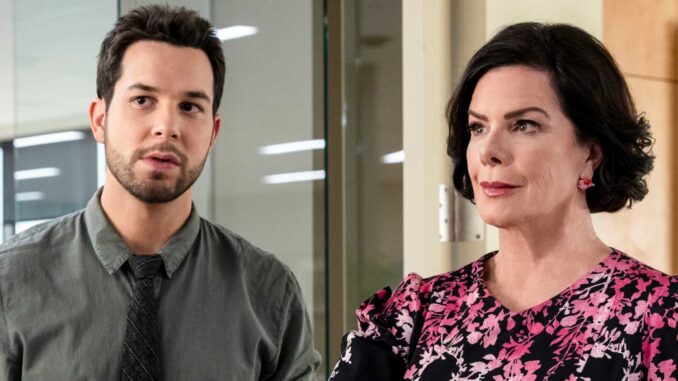
The Weight of the Would-Have-Been: Heather Morris and the Unwritten Choices of "So Help Me Todd"
Heather Morris, best known for her vivacious portrayal of Brittany Pierce on "Glee," is no stranger to the demanding world of television. Yet, stepping into the role of Judy Winslow on CBS's legal dramedy "So Help Me Todd" presented a unique set of challenges. While she seamlessly integrated into the dynamic between the tightly wound Margaret Wright and her hapless but charming son, Todd, it's arguable that the most significant performance Morris delivered was one she didn't give. The role simmered with potential pitfalls, unspoken character arcs that, if explored, could have dragged Judy into a territory she was ultimately spared. And, according to Morris herself, that's exactly what she was relieved about: avoiding the trap of making Judy into a one-dimensional obstacle to Margaret and Todd's already fraught relationship.
"So Help Me Todd" thrives on its central conflict: the constant push and pull between the meticulous, detail-oriented lawyer Margaret and her impulsive, street-smart son. Judy, as Margaret's ambitious and competitive colleague, could easily have been positioned as a rival, a constant source of professional friction and personal resentment. The writing teases this possibility. Judy's sharp wit and undeniable competence are often played against Margaret's control-freak tendencies, creating a simmering undercurrent of tension. One can easily imagine a version of the show where Judy actively undermines Margaret, vying for promotions, subtly sabotaging her cases, and even, perhaps, making a play for Todd's affections.
This path, however, would have been a disservice to the overall tone of the series. "So Help Me Todd," despite its legal framework and often serious subject matter, leans heavily into comedic relief. Turning Judy into a full-fledged antagonist would have shifted the balance, injecting a level of negativity that could have alienated viewers and overshadowed the core family dynamic. It would have transformed Judy from a complex, ambitious woman into a caricature, a cardboard cutout villain whose sole purpose was to impede the progress of the protagonists.
Furthermore, such a trajectory would have diminished Judy's own potential. While her professional aspirations are evident, her motivations remain nuanced. The subtle hints of insecurity beneath her confident facade suggest a vulnerability that would be lost if she were reduced to a solely competitive force. Instead, the writers, with Morris's implicit contribution, crafted a Judy who, while ambitious, is also capable of empathy and collaboration. She challenges Margaret, yes, but she also respects her expertise and occasionally even seeks her advice. She can be competitive, but she never resorts to underhanded tactics.
This restraint, this conscious decision to avoid the easy tropes, is precisely what makes Judy such a compelling character. She's not simply a foil; she's a fully realized individual with her own goals, insecurities, and complexities. She adds depth to the workplace environment, offering a counterpoint to Margaret's rigidity without resorting to outright antagonism. She provides a grounding presence for Todd, offering a perspective that is neither motherly nor romantic, but simply that of a pragmatic and intelligent colleague.
Ultimately, Heather Morris's relief at not having to embody a purely antagonistic Judy speaks to the importance of nuanced character development in television. It underscores the fact that the most impactful performances are not always the most dramatic or overtly villainous. Sometimes, the most powerful statement an actor can make is to restrain, to suggest the complexities beneath the surface, and to trust that the audience will appreciate the unspoken depths of a character. In "So Help Me Todd," Morris's Judy stands as a testament to the power of restraint, a reminder that sometimes, the most compelling narratives are the ones that are not explicitly written, but rather implied, hinted at, and ultimately, left unsaid.
